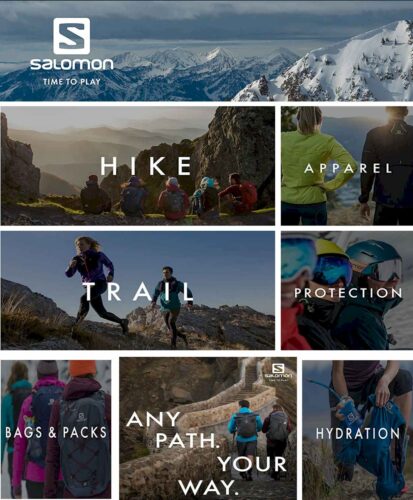Extreme Hiking – La Mexicana Mine – Argentina
La Mejicana Mine is a gold mine located in Cerro Famatina at 15,100 feet above sea level and 34 km from the city of Famatina in the province of La Rioja, Argentina.
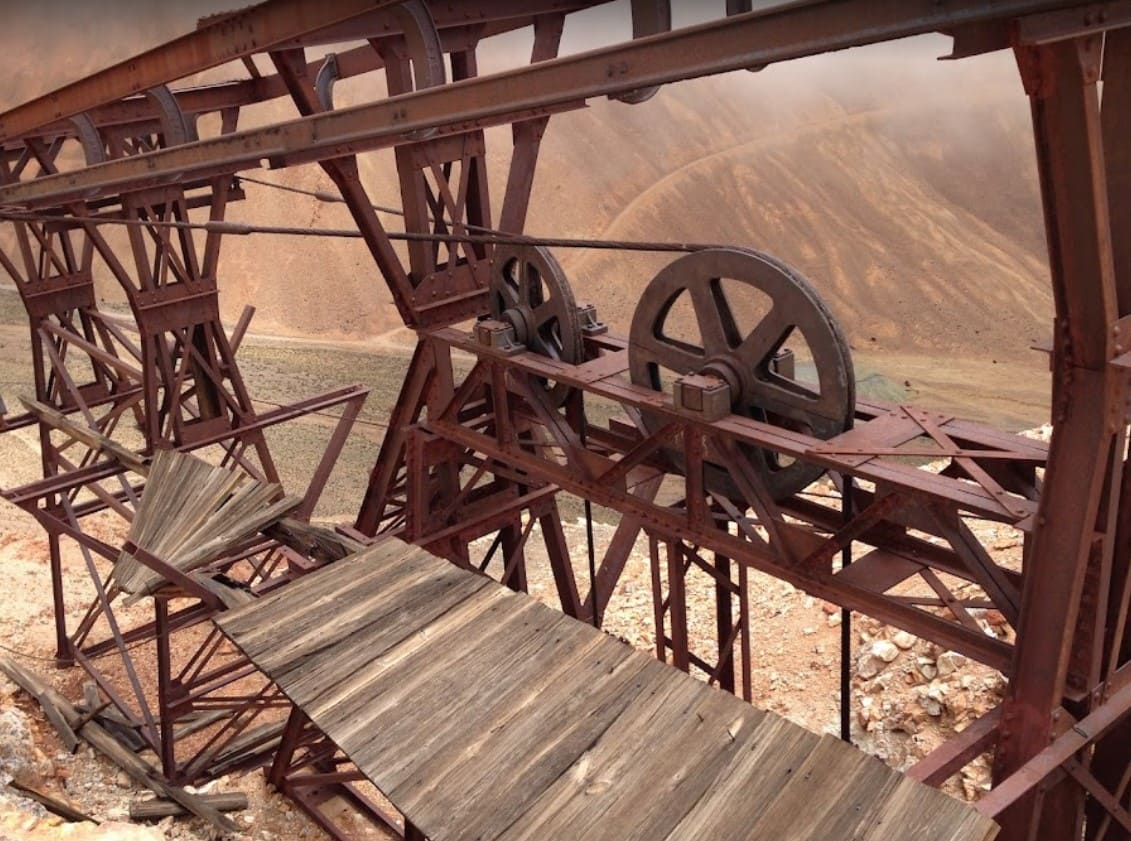
To transport the large amount of ore to Chilecito – Argentina, what was at the time one of the largest engineering works in the world was built, a cableway, which was completed in 1905, with a length of 35 km and which is currently part of the monuments and historical places of Argentina.
Towards the end of the 19th century, Famatina became one of the most important districts with the production of gold, silver, iron, copper and lead.
On National Route 40, in the South Access to the city of Chilecito (La Rioja – Argentina), you can see the old and abandoned structure of Station number 1 of the cableway Chilecito – Mina La Mejicana, with more than 120 years of history.
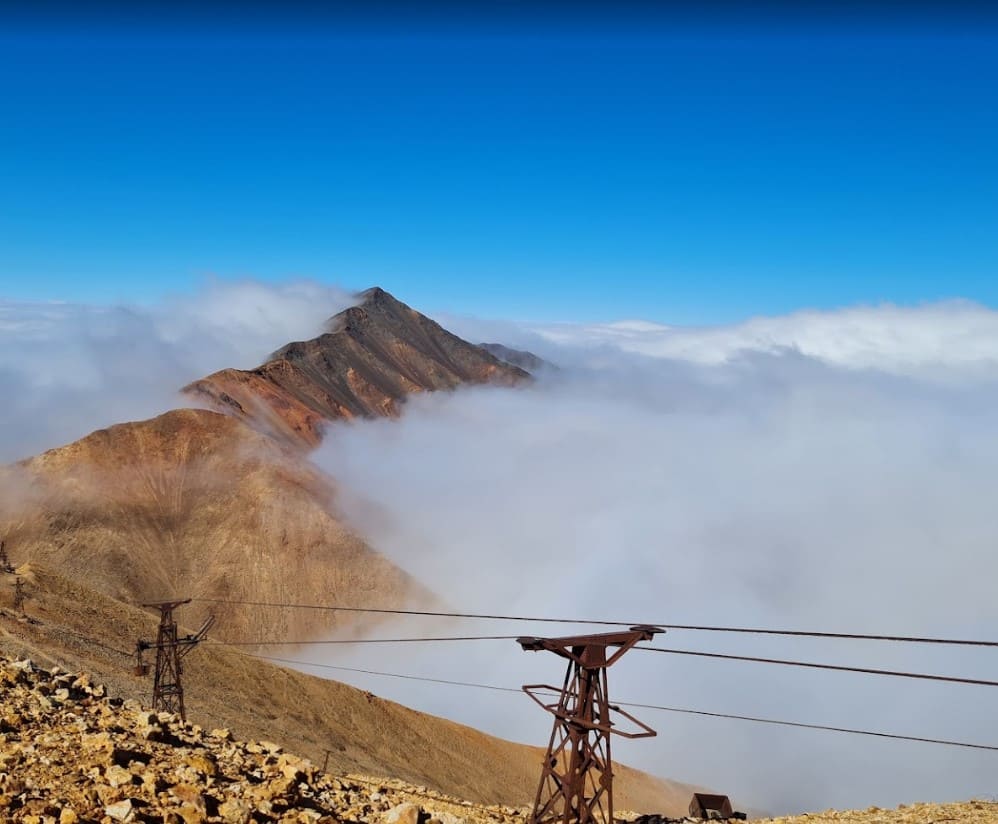
An almost unique construction in the world
It is an almost unique construction in the world. A transport system that advances 24 miles in a straight line from above roughly 3,600 feet, in Chilecito, and up to almost above roughly 15,100 feet in the heights of Famatina.
Along the way there are 262 towers, 9 stations and 6 boilers marking a geological circuit that invites you to discover (hiking, mountain biking, car, 4×4, mule or horseback) the ruins of what was once the foundry center of the most important minerals in Argentina.
In this area and in the seventeenth century the Catholic religious order of the Jesuits knew of the mineral wealth in gold and copper of this land. After the expulsion of the Jesuits by order of the King of Spain, in the middle of the 18th century, the settlers forgot about mining.
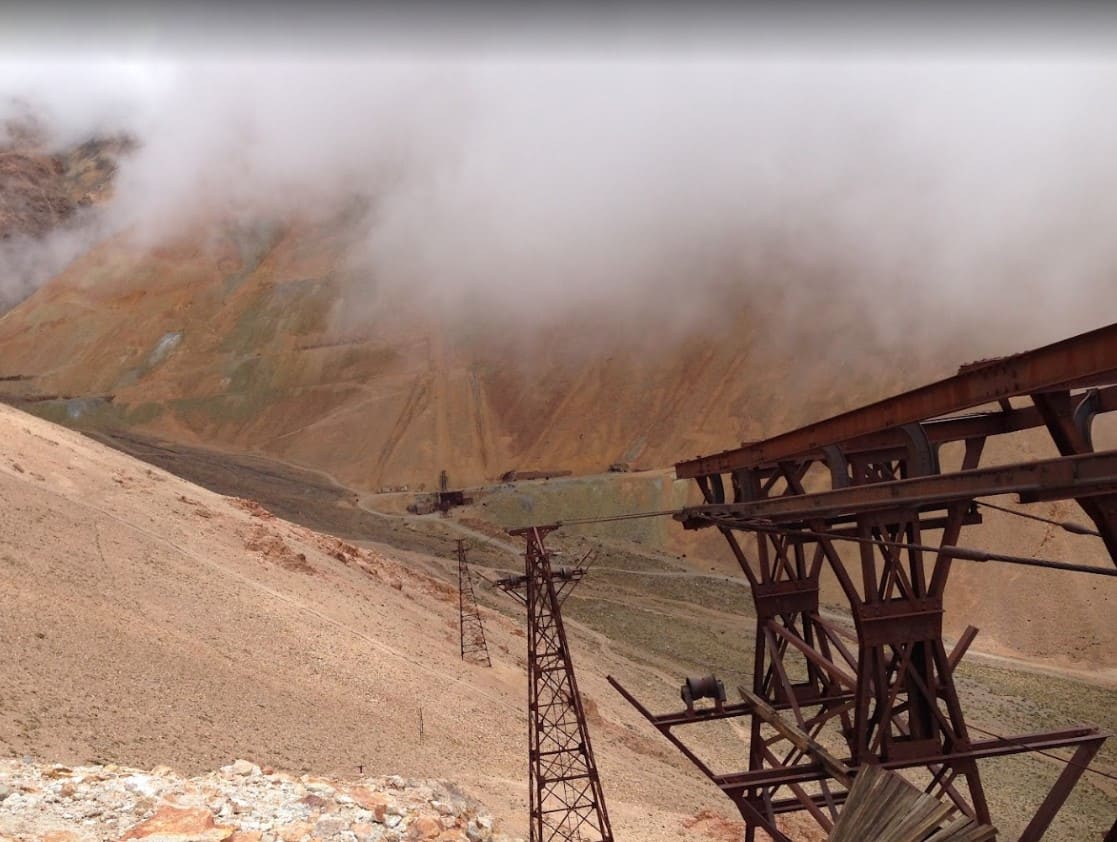
Mine operations begin
An explorer of Mexican origin discovered a gold mine. This mine was commercially exploited from the end of the 19th century by an English company that around 1903 contracted the German company Bleichert & Co. This contract led to the construction of a transportation system through which to transport the minerals from the top of the Famatina to the port of Buenos Aires, via the Northern Railroad, for export.
The operation of the mine was falling when the first world war began in 1914 and the British withdrew from the project. Other private companies continued with the exploitation until 1926, the year in which they ceased forever.
Currently the deposit is abandoned and is only used by tourism to visit the abandoned mine facilities.
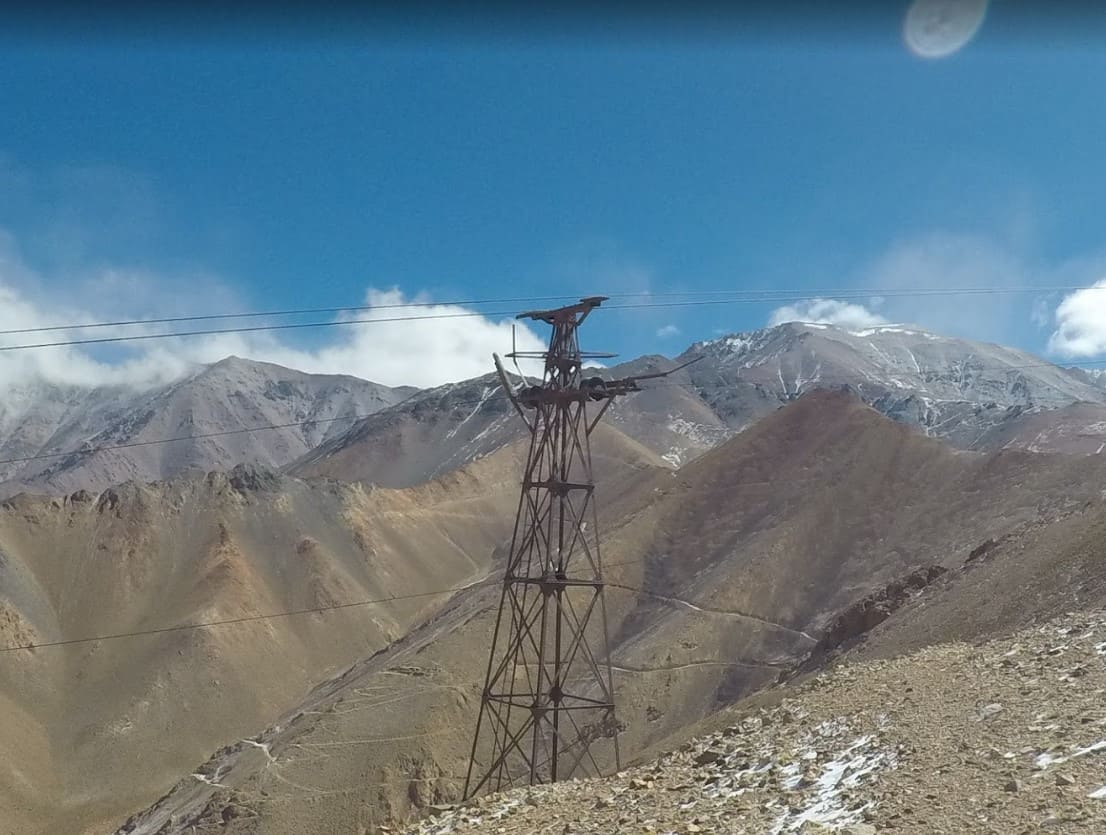
Knowing the cableway
The Mexican Station Number1
Arriving in Chilecito through the South Access on National Route 20, you will find the Cablecarril museum, located where the administrative offices of La Mejicana used to work. The museum preserves documentary material from La Mejicana – Mining Museum. It also protects testimonies of the mining past of Chilecito. There are plans, tools, minute books, remains of minerals, machinery, photos
and documents. It is organized in two parts: the Museum itself, where iconographic documents, plans, tools, books, minerals, machinery, photos and an interconnected communication system are exhibited.
Station #1
In the other sector of the same property, the station from which the trucks and hoppers departed, where the minerals were unloaded, is located. There are also various types of trolleys, an elevator, counting systems and a pitch-pitch boom or pulley.
Victorinox Store 2022
Station #2 – El Durazno (The Peach)
The station is so called because of the color of the river that passes by, an ocher-colored river through whose waters run minerals. The station is located in Santa Florentina, 11 miles from Chilecito and at an altitude of 5,050 feet.
This station is the only one that has a division in the branch, a small detour that leads to the ruins of the smelting furnaces, where 3% of the material was processed for the maintenance of the cableway and the payment of workers’ salaries.
Between stations #2 and #3 the distance is 8 km in a straight line, but by vehicle it adds up to about 14 km. A few miles above Santa Florentina, where the camping area is concentrated, the Agua Negra post is the meeting point of the river of the same name and that of the Amarillo River, a crossroads of crystalline waters loaded with minerals. The rivers cross, but incredibly, but the waters do not mix.
Station #3 – El Parron
Until this station you can make the journey in a 4×4 vehicle, preferably in the latter case with a guide service, since you can reach a certain point and then continue via trekking.
From this station, all the following ones are accessed by mountain trails. you already have to take proper equipment to a crossing
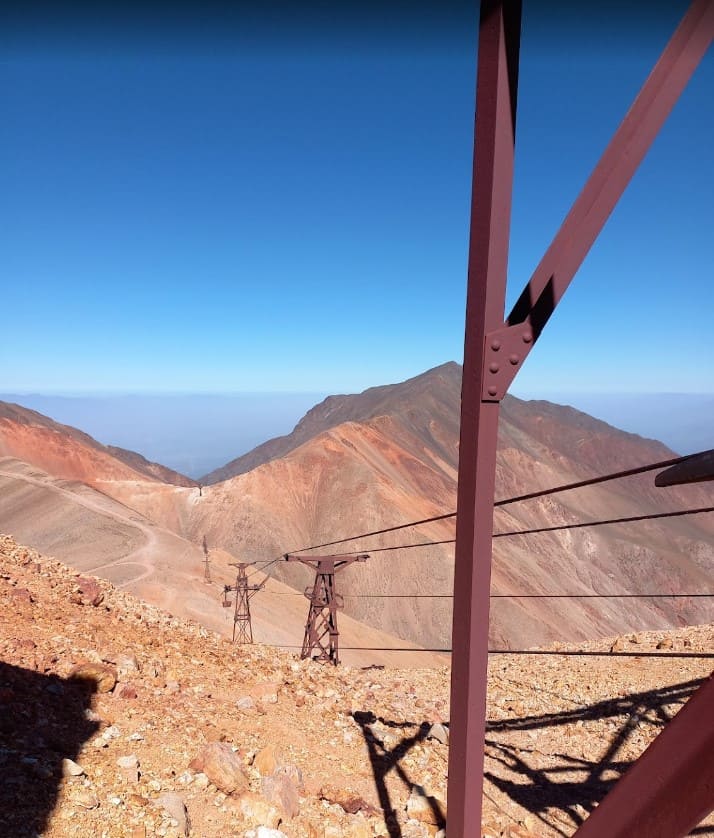
Hiking on the path of the La Mexicana Mine
There are adventure tourism excursions to visit the remains of the mine and ascents and descents along what was once the cable car path. For tourists inexperienced in mountaineering, it is not recommended to visit the mountainous area without hiring a specialized guide. Or in any case, follow the rules of safe Hiking and accumulate enough information well in advance.
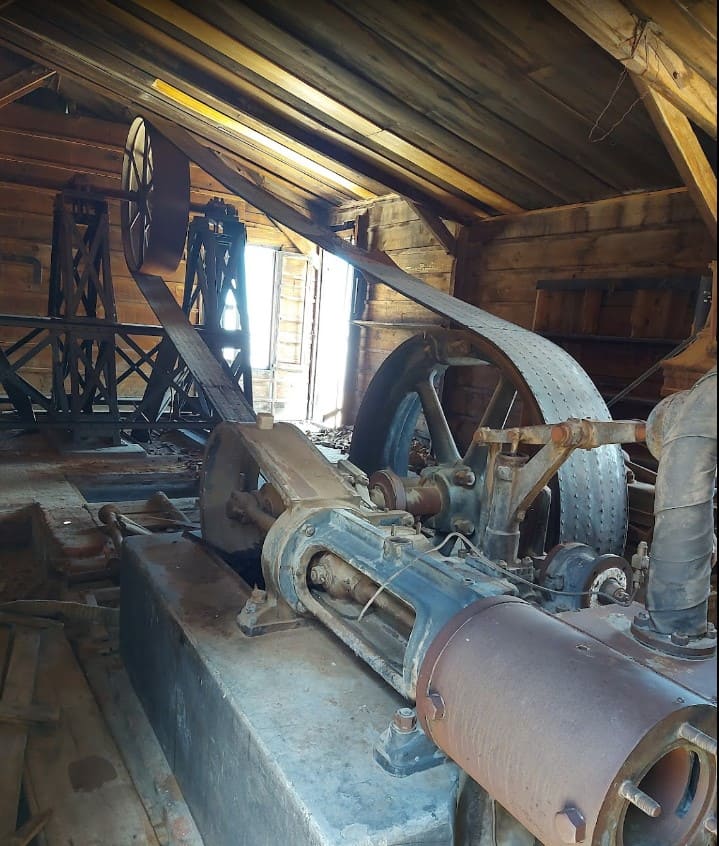
| # | Name |
Height above
sea level – |
Partial distance
miles |
Total distance
miles |
|---|---|---|---|---|
| I | Chilecito | 3,526 ft | 5.56 | 5.56 |
| II | El Durazno | 5,050 ft | 5.27 | 10.84 |
| III | Parrón | 5,475 ft | 1.89 | 12.73 |
| IV | Siete Cuestas | 8,332 ft | 1.92 | 14.66 |
| V | Cueva de Romero | 8,825 ft | 1.20 | 15.86 |
| VI | El Cielito | 10,643 ft | 1.40 | 17.27 |
| VII | Calderita Nueva | 12,920 ft | 1.90 | 19.18 |
| VIII | Los Bayos | 14,350 ft | 2.14 | 21.33 |
| IX | La Mejicana | 15,101 ft |
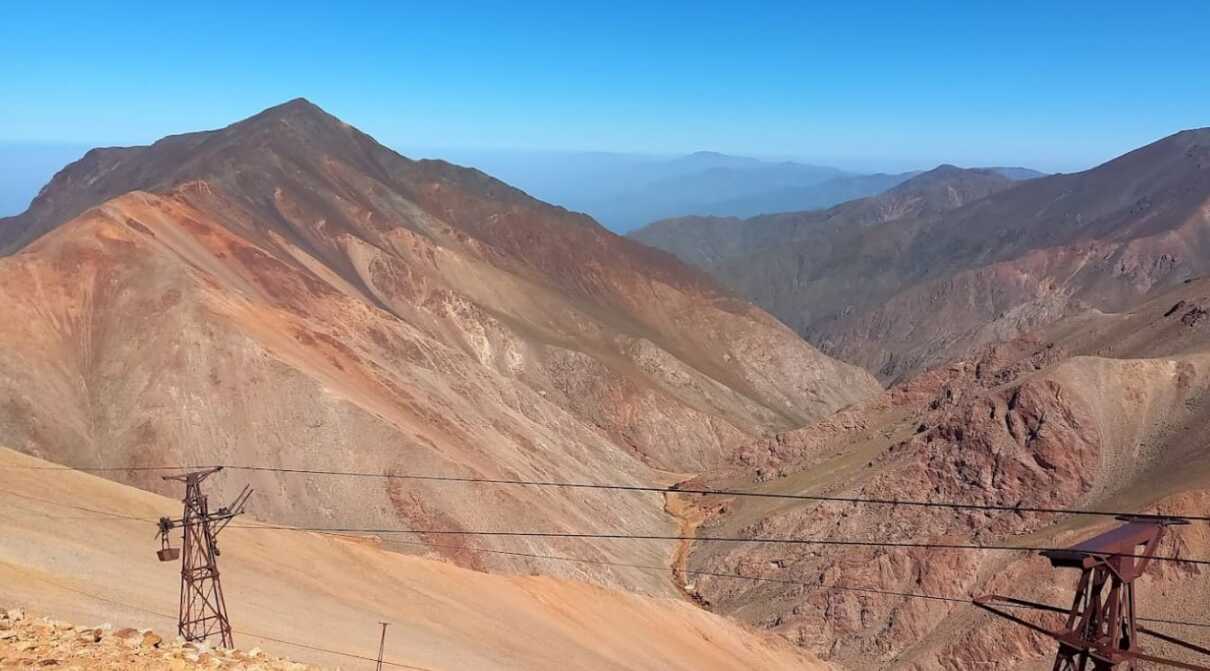
Characteristics of the La Mexicana Mine Cableway
The cableway had the following characteristics: the speed was 8 ft/s, it had 450 carts separated by about 400 ft, each with a load of 100 pounds and a capacity of 0.9 ft³. In some places the height with respect to the ground reached 1300 feet.
Each station is linked to the next by a support cable and a traction cable, supported by towers placed at regular intervals. Upon reaching each station, the car was unhooked from the traction cable and coupled to the next station. The support cable is 1 1/4″ and the traction cable is 1″, both made of steel, with lead hooks between the cable sections. In all, there are 262 towers that are between 4 and 150 feet tall. 90 miles of steel cable were used, with 58 miles in reserve.
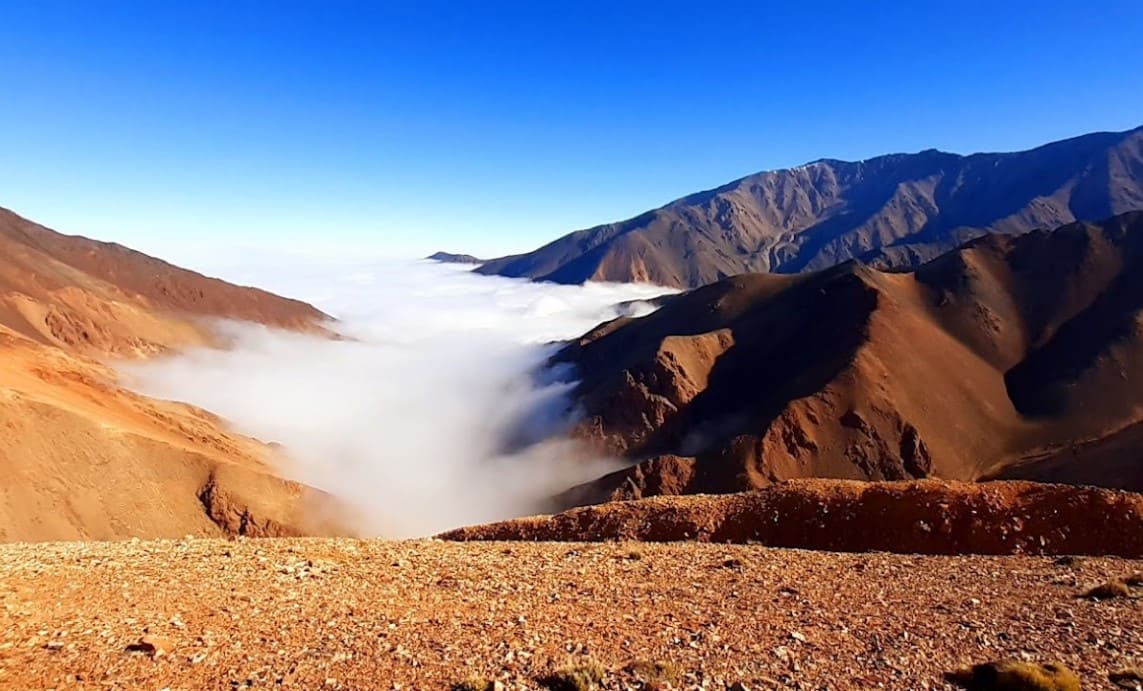
The load was not only ore
In addition to the transport of bulk cargo, there were also special wagons for the transport of water, fuel, food, construction materials, demolition, and also people. There was also a special trolley for greasing and varnishing the cables that carried a person, a lubricant tank and a manual pump that allowed this task to be carried out as each section was traveled.
The construction of the Cableway la Mexicana
About 1,600 people worked for the construction of the cableway and pack animals were used as a means of transport, in particular, donkeys and mules, an average of 90 donkeys to transport food and 600 mules to transport construction materials. The inauguration of the first sections was on July 4, 1904 and the commissioning on January 1, 1905.
The cableway ended its activity at the end of 1920. It was restarted between stations I and II for tourist purposes, but the activity was quickly interrupted after an accident in which two people lost their lives. Since 2000 it has returned to service between those stations for maintenance purposes.
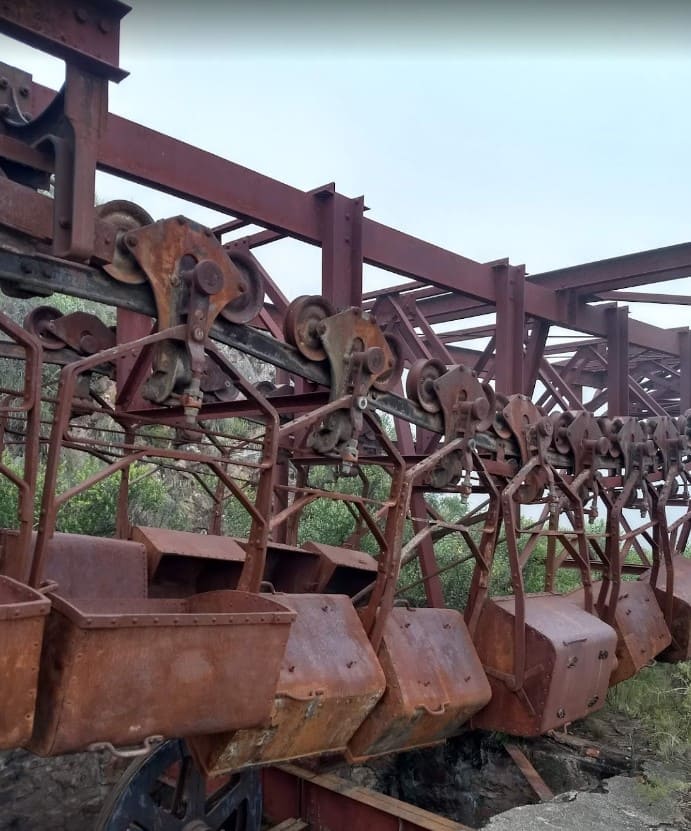
Cableway Accidents
At the beginning of 1994, after repairs and restorations, the cableway was started again between stations I and II for tourist purposes. Tourist activity was interrupted after on July 24, 1994, two wagons collided with each other, leaving the insurances of both and causing the fall of two people who were in one of the wagons and who died. A second wagon It did not turn completely, saving the lives of an adult and a minor. Since 2000 it has returned to service between those stations for maintenance purposes.
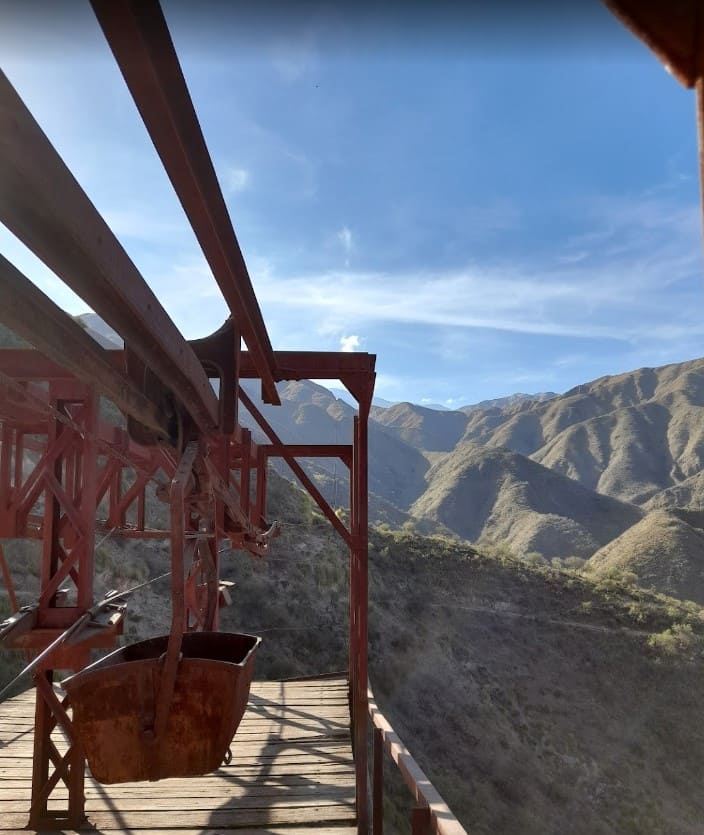
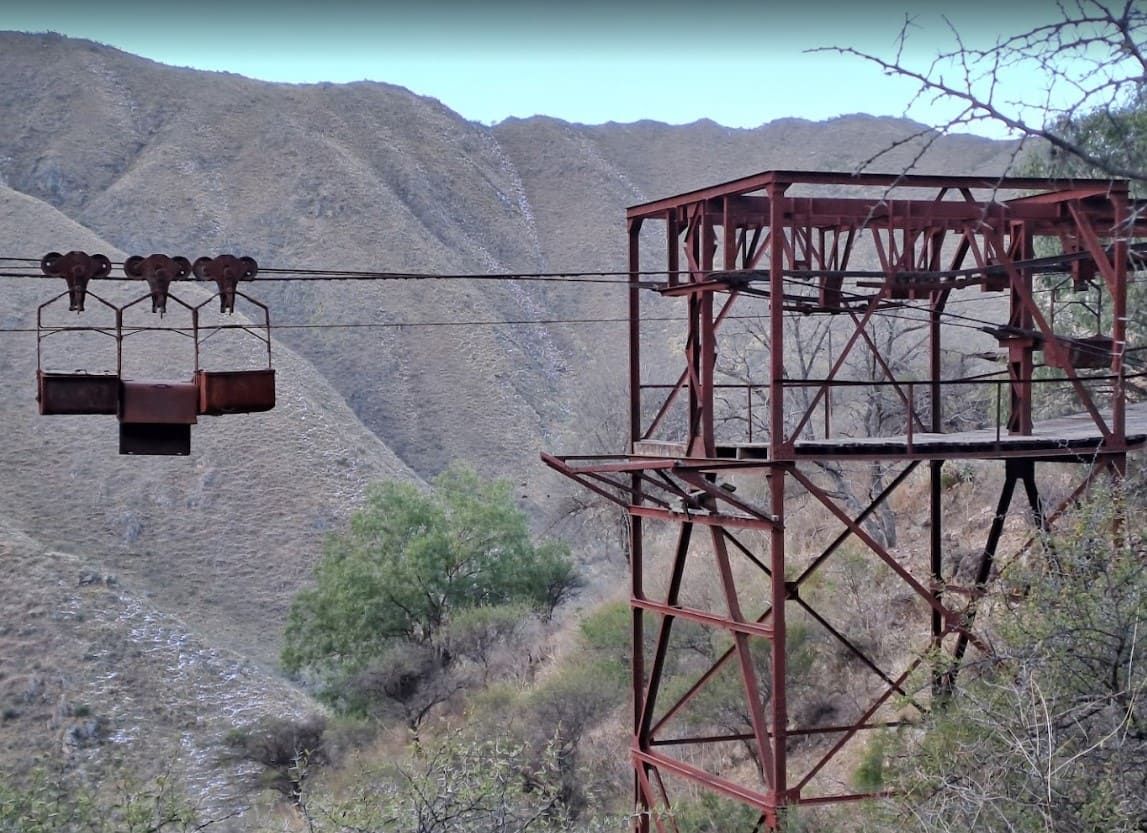
related Post
